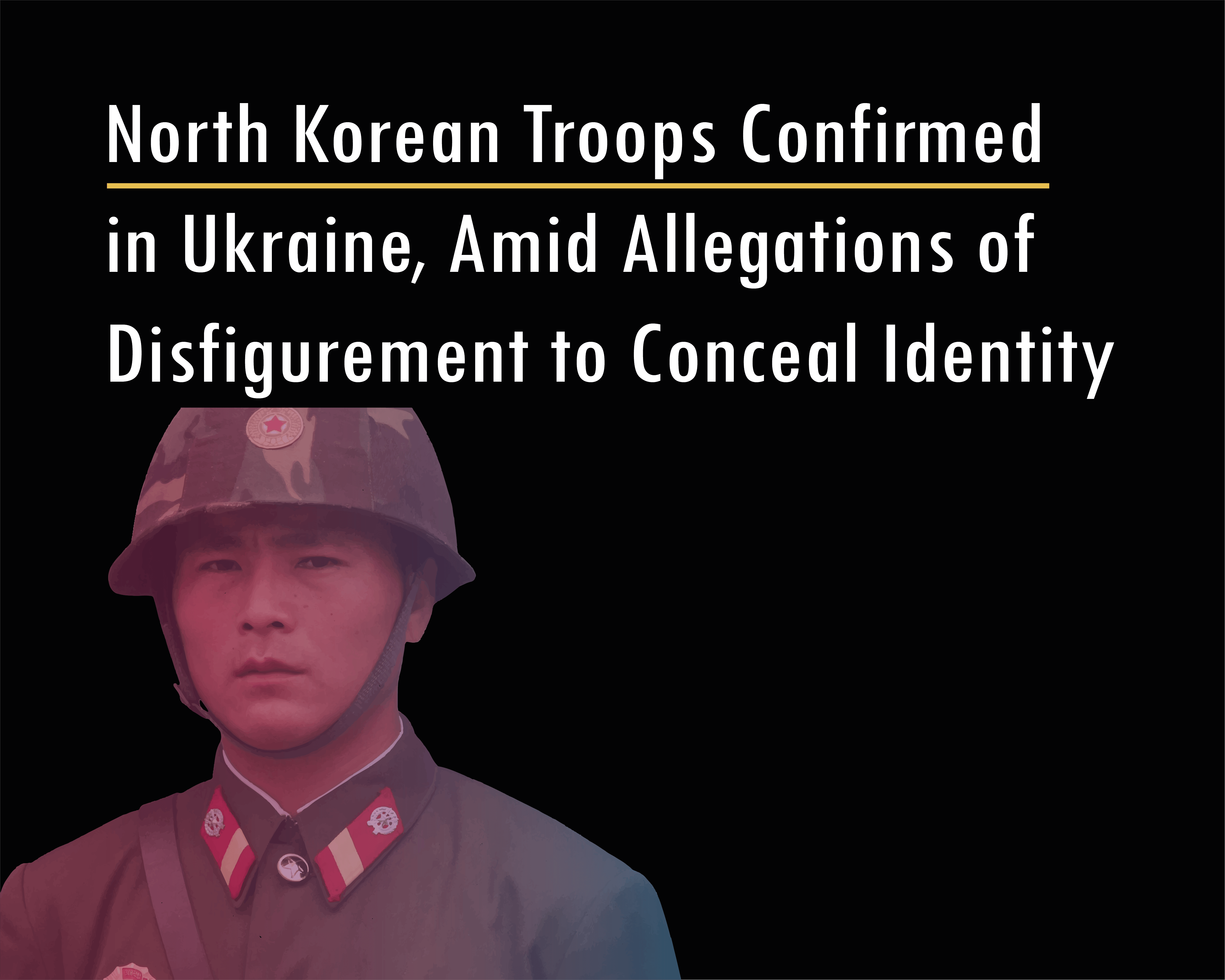US and South Korean intelligence agencies’ reports suggest the deployment of North Korean soldiers to Russia’s Kursk region as part of military collaboration between Moscow and Pyongyang. These troops are believed to be engaged in frontline operations in Russia’s war against Ukraine, drawing international scrutiny and leading to sanctions by the United States and South Korea.
North Korean Presence on the Front
Neither the Russian government nor North Korea has confirmed the presence of North Korean soldiers in the conflict. However, the United States has stated it has “indications” of North Korean troops being killed and wounded in Kursk. South Korea’s National Intelligence Service (NIS) is also verifying these reports, which it has described as “likely to be true.” According to the NIS, up to 12,000 North Korean soldiers may be deployed in Kursk, where combat continues as Russia attempts to reclaim its territory captured during Ukraine’s incursion last August.

Ukraine’s Main Directorate of Intelligence (GUR) also claims it has documented evidence of North Korean involvement, including intercepted communications and reports of injured North Korean servicemen receiving treatment near Moscow.
This deployment follows earlier allegations of North Korea supplying arms and ammunition to Russia, including missiles and artillery shells.
Casualties and Combat Challenges
The NIS reported that North Korean troops have faced high casualties, attributed to their lack of preparedness for modern battlefield tactics, particularly drone warfare. Reportedly, at least 100 North Korean soldiers have been killed since December, with injuries estimated at approximately 1,000.
Ukrainian sources, including the 8th Separate Special Operations Regiment, released footage of drone strikes against North Korean soldiers, reportedly resulting in around 50 fatalities during a single engagement on December 16.
Mykhailo Makaruk, an operator in Ukraine’s 8th Separate Special Operations Regiment, shares his battlefield encounter with North Korean troops in an exclusive interview with RFA, highlighting their outdated drone warfare tactics, which leads to significant casualties.#Ukraine pic.twitter.com/QI9Hzu5mNC
— Radio Free Asia (@RadioFreeAsia) December 19, 2024
North Korean units have attempted to counter these challenges by establishing additional observation posts to detect drones. However, Ukrainian officials have stated that these forces remain unprepared for unmanned aerial vehicle (UAV) attacks. Reports also indicate that Russian forces have labeled the North Korean troops a “burden” due to their lack of familiarity with modern combat operations.
Allegations of Concealing North Korean Troop Presence
Ukrainian President Volodymyr Zelensky has accused Russian forces of concealing the identities of deceased North Korean soldiers by burning their faces. According to Zelensky, Ukrainian forces have released images and videos showing what are purportedly the bodies of North Korean soldiers among the casualties in the Kursk region. In one video, a corpse is seen being burned on a snow-covered slope, which Zelensky claims is an attempt to hide North Korea’s involvement.
🇺🇦 🇰🇵🇷🇺 #Ukrainian President Volodymyr #Zelensky claimed on Dec. 16 that the #Russian military is attempting to hide the losses of #NorthKorean soldiers fighting in the war against #Ukraine, by burning their faces off:
More in the TG pic.twitter.com/pbOgwS5Lki
— OS Intelligence (@Global_OSINT22) December 18, 2024
Ukrainian officials also have claimed that Russia has been recovering and destroying the bodies of North Korean soldiers to obscure their identities.
⚡️ Zelenskyy shared a video showing Russian troops burning the bodies of North Korean soldiers killed in battle to hide their presence and losses.
💬 "Russians are trying… to literally burn the faces of North Korean soldiers killed in battle."pic.twitter.com/pXPnTD8cuN
— UNITED24 Media (@United24media) December 17, 2024
Sanctions and International Reactions
In response to North Korea’s reported support for Russia, South Korea announced sanctions against several North Korean officials and entities. These include Kim Yong Bok, Deputy Chief of the General Staff of the Korean People’s Army, and Sin Kum Chol, Director of the General Staff’s operations bureau. Also sanctioned were Ri Pong-chun, leader of the “Storm Corps” special troops reportedly deployed to Russia, and Ri Song-jin, a missile developer stationed near Russia’s conflict zones.
South Korea’s sanctions align with measures announced by the United States targeting North Korean individuals and entities linked to the Ukraine conflict. Collectively, these actions aim to curb North Korea’s support for Russia, which is seen as a violation of United Nations Security Council resolutions.
Broader Context of Collaboration
The presence of North Korean forces in Kursk underscores the deepening military ties between Moscow and Pyongyang. Over the past two years, North Korea has alleedly provided material support to Russia, including substantial quantities of ammunition and weaponry.
However, despite North Korea describing its partnership with Russia as “legitimate,” neither country confirmed the involvement of Kim Jung-Un’s soldiers in Ukraine. The US, European Union, and South Korea have condemned this cooperation as a breach of international norms.
Numerous videos suggest that Russian leadership is actively concealing the presence of North Korean troops. This likely aims to avoid international backlash, protect its alliance with North Korea, and obscure foreign involvement in its military operations — preserving Russia’s narrative of strength and self-reliance in the conflict.

